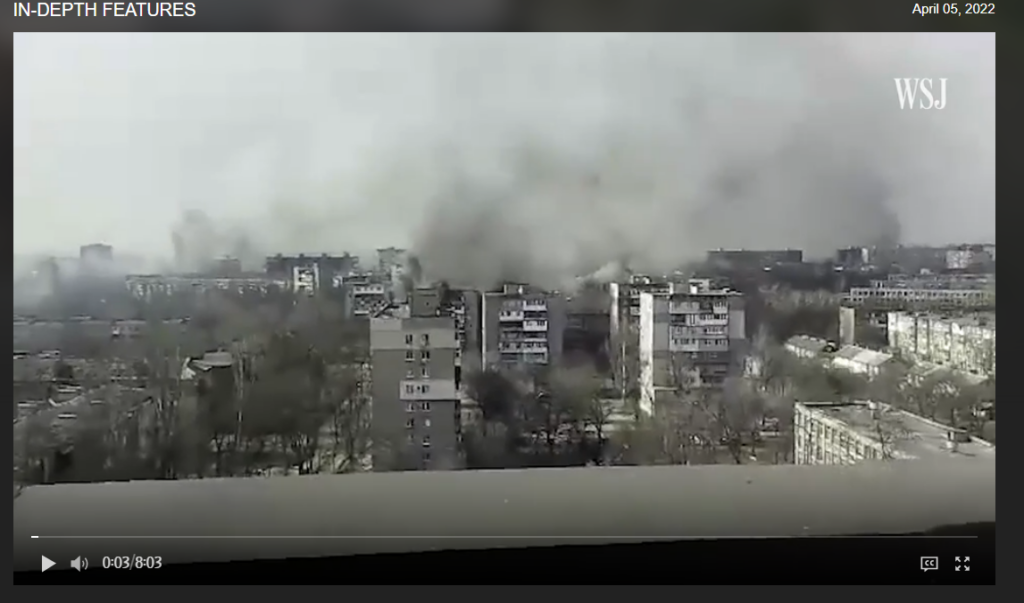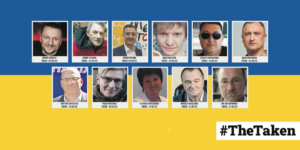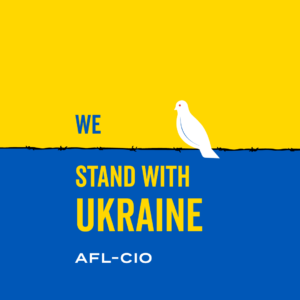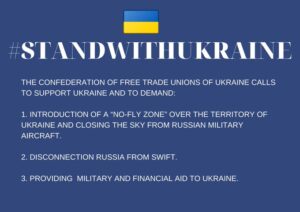
Seven Ukrainian civilians executed by Russian soldiers in two separate incidents. A case of repeated rape. These are just two of the many Human Rights Watch findings on apparent war crimes committed by Russian forces in recent weeks, the group writes:
They show unspeakable, deliberate cruelty and violence on the part of Russian soldiers. One of the executions took place on March 4 in Bucha, a town northwest of Kyiv. Five Ukrainian men were told to take off their jackets and boots, kneel on the roadside and put their T-shirts over their heads. Then one of them was shot at short range.
 Ensuring Ukraine prevails is now the only moral choice, notes Chatham House expert Keir Giles.
Ensuring Ukraine prevails is now the only moral choice, notes Chatham House expert Keir Giles.
The bottom line is for Russia this is not ‘the war’ – instead it is the first of the wars of reconquest in Putin’s campaign to bend reality to match his historical fantasies, he writes. That means that a successful outcome to the fighting in Ukraine is critical not only to Ukrainian statehood, but to the future security of Europe as a whole. And that in turn means the only way to secure Europe is to ensure Ukraine prevails, Giles adds.
A WSJ analysis of videos, photos and satellite images (above) from four weeks in March reveals how Russian forces destroyed civilian infrastructure through a series of shellings, with remnants of weapons indicating the use of cluster bombs. CLICK HERE. Photo illustration: Laura Kammermann.
 The AFL-CIO’s Solidarity Center [a core partner of the National Endowment for Democracy], has had an office in Ukraine for more than 15 years, the labor federation’s Laura Guttierez writes. It supports a Ukrainian nongovernmental organization called Labor Initiatives, a labor rights advocacy and legal aid center with offices in Kyiv and in the Donbas region town of Dobropillya.
The AFL-CIO’s Solidarity Center [a core partner of the National Endowment for Democracy], has had an office in Ukraine for more than 15 years, the labor federation’s Laura Guttierez writes. It supports a Ukrainian nongovernmental organization called Labor Initiatives, a labor rights advocacy and legal aid center with offices in Kyiv and in the Donbas region town of Dobropillya.
The Solidarity Center believes Vladimir Putin’s “illegal and unjustified attack on a sovereign, free Ukraine is a watershed moment in the struggle for human freedom.”
“Most people don’t know that [organized labor is] one of the largest global infrastructures in the world,” AFL-CIO international director Cathy Feingold told POLITICO’s Eleanor Mueller. “We have unions in every country. So when something like this happens, we’re able to really mobilize.”
 The AFL-CIO works with the Solidarity Center to help deliver humanitarian aid, she said. United Auto Workers, among other affiliates, are also making donations to their partners in the region. “We have a network of trust that’s built,” she said. That “makes it a little bit easier” and is “different than other traditional humanitarian aid.”
The AFL-CIO works with the Solidarity Center to help deliver humanitarian aid, she said. United Auto Workers, among other affiliates, are also making donations to their partners in the region. “We have a network of trust that’s built,” she said. That “makes it a little bit easier” and is “different than other traditional humanitarian aid.”
International trade union convoys to Bosnia were a vital reminder that the world cared about the people there and their struggles. Now’s the time for something similar for Ukraine, Bob Myers writes for Open Democracy.
See also:
- Franklin Foer describes The Horror of Bucha in The Atlantic.
- The war in Ukraine is remaking the NATO alliance, Andrew Michta writes for 1945.








